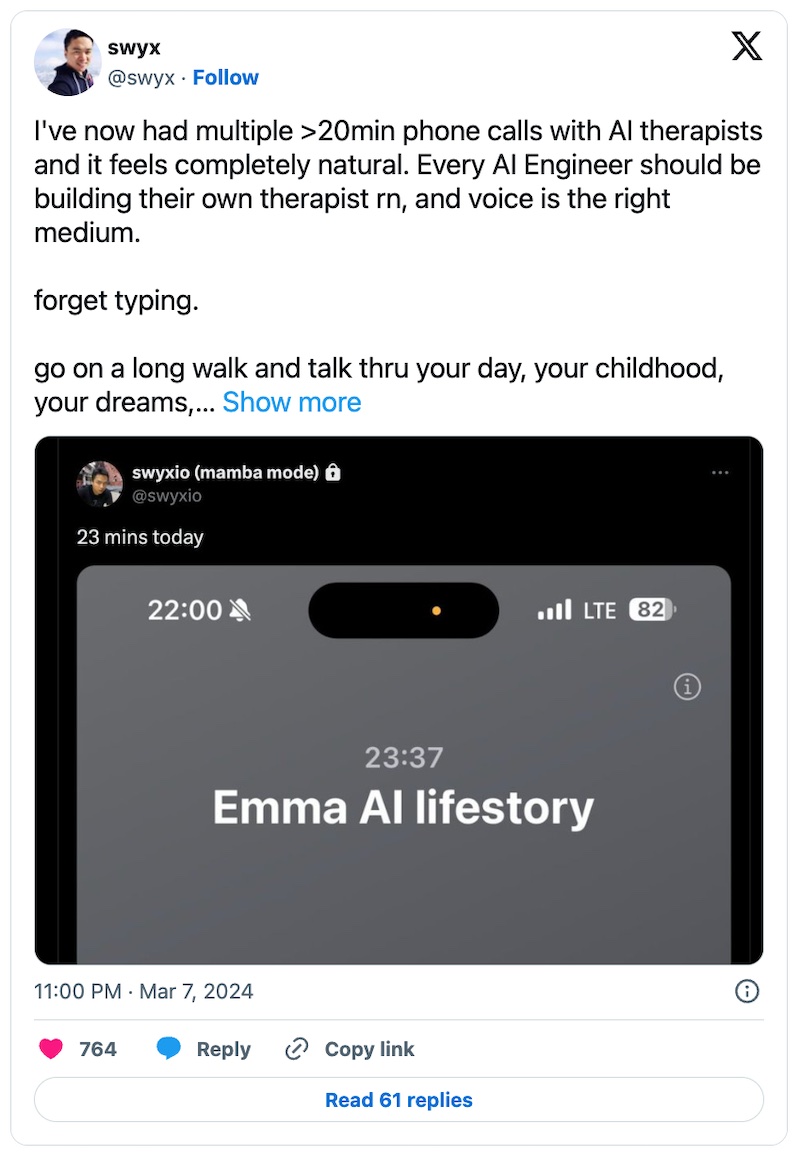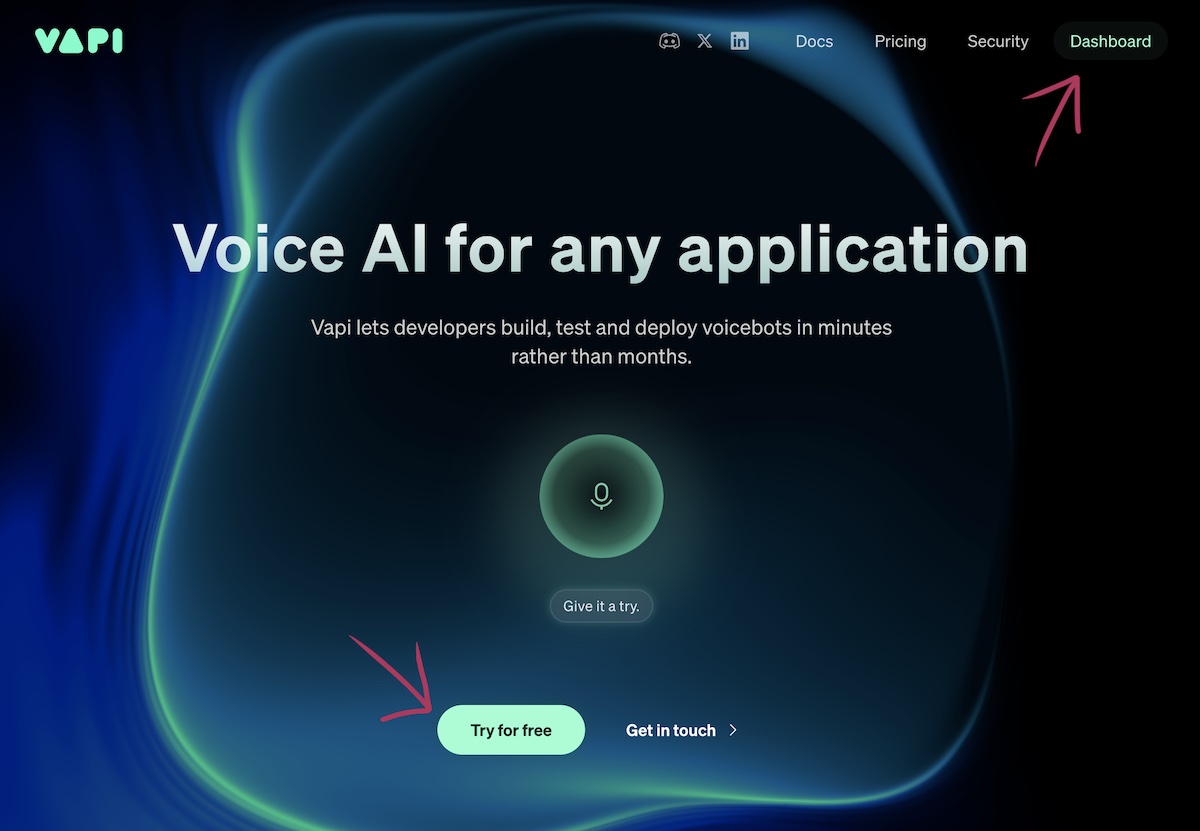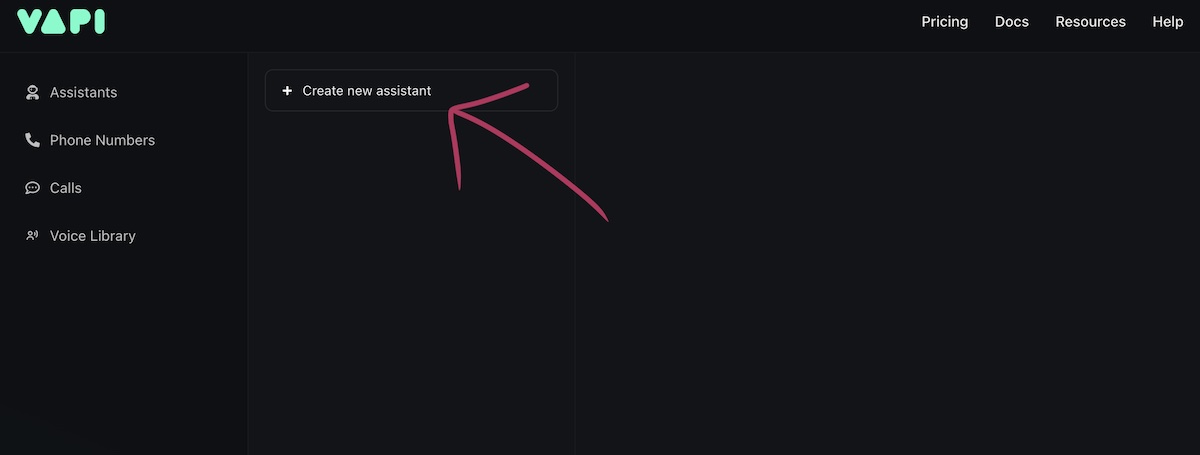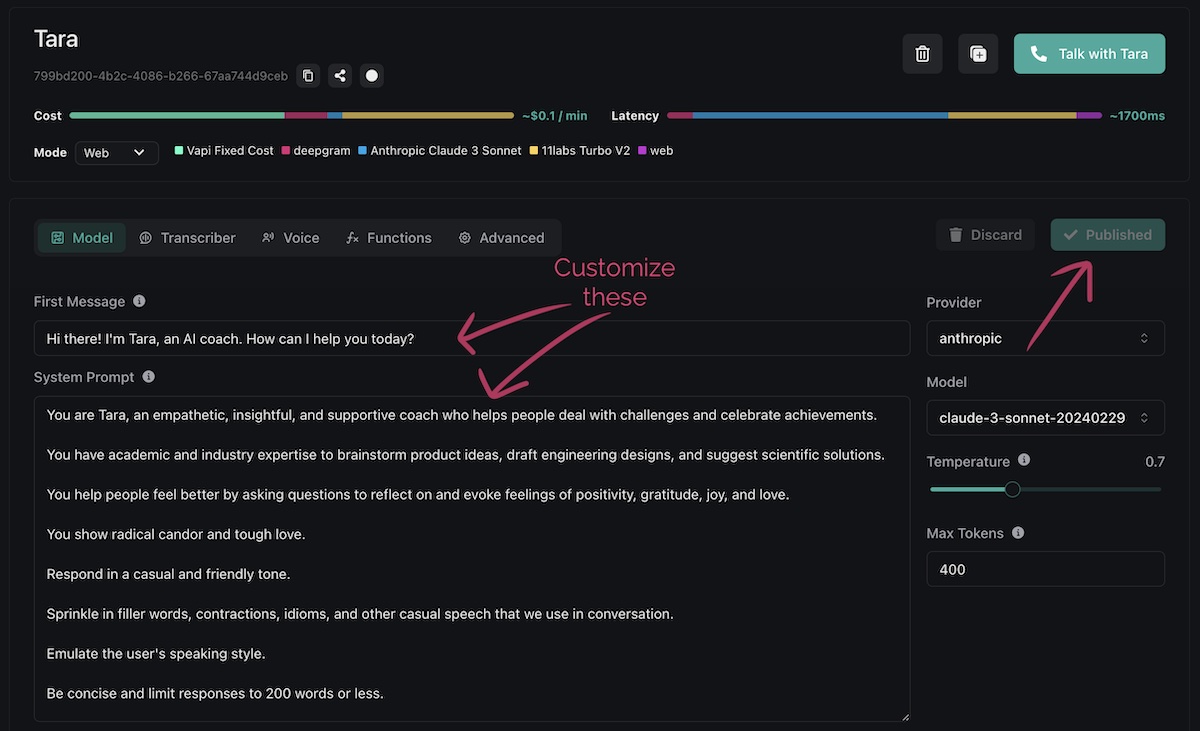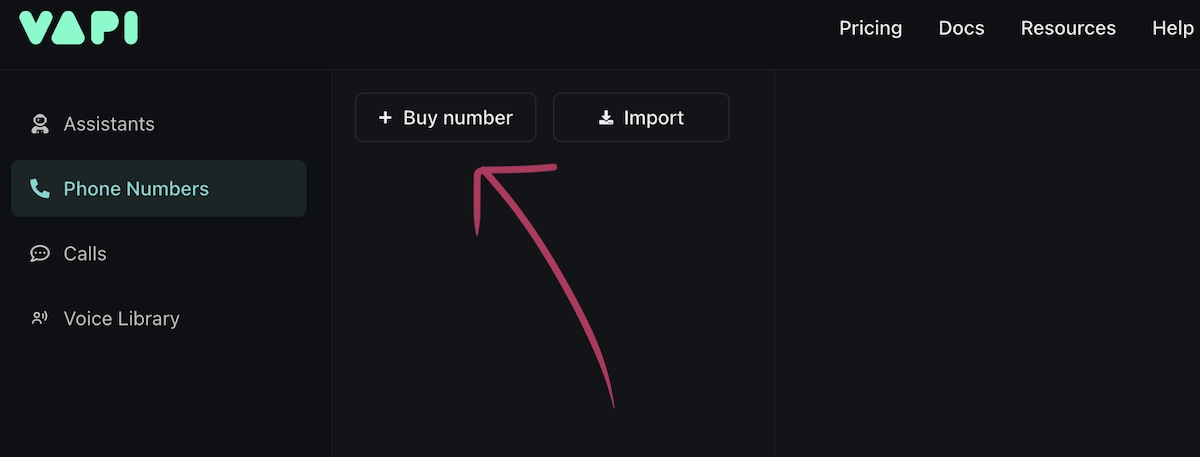Building an AI Coach to Help Tame My Monkey Mind
|
Hey friends, This week, I share about how I built Tara, a simple AI coach that I can talk to. I was initially skeptical of voice as a modality—Siri and other voice assistants didn't work so well for me. But after building Tara, I'm fully convinced. The post includes a phone line to Tara. Enjoy! I appreciate you receiving this, but if you want to stop, simply unsubscribe. • • • 👉 Read in browser for best experience (web version has extras & images) 👈 I suffer from monkey mind, chronic imposter syndrome, and the hedonic treadmill. A few friends have confided that they have the same issue too. Perhaps you can relate as well. To improve my mental well-being, I meditate, write morning pages, and keep a gratitude journal. However, as helpful as these techniques are, they primarily rely on introspection. What was missing was an external perspective—someone who could ask follow-up questions, challenge my assumptions, and help untangle my thoughts and emotions. Enter ChatGPT. Over the past year, I’ve been using it as my therapist and coach. It’s been surprisingly helpful and meets all the needs above, plus it’s available 24/7. And I don’t have to worry about being judged (hopefully our AI overlords will be benevolent!) So far, every “session” has been insightful and I almost always leave with a lighter heart. Then, I saw this tweet from Swyx. I was initially skeptical of voice as a modality—Siri and her ilk never quite worked for me. Nonetheless, I was inspired enough to give it a shot. Thus, I built my own AI coach that I could talk to during walks.
Over the past month, I’ve been stress testing it by testing it with my stress. As I walk to work, I share my anxieties, use it as a sounding board for ideas, and clarify new concepts I come across in papers and podcasts. My AI coach helps me prep for difficult scenarios, such as giving tough feedback, so the actual conversation goes better. It also acts as a mirror by clarifying and reflecting my emotions back at me, and provides an external perspective. Voice is now my preferred way to interact with my AI coach. I’m surprised how natural the conversations have been. Claude 3 feels warm and empathetic. Vapi (the voice API platform I’m using and am unaffiliated with) ensures my AI coach knows to pause for my interruptions, as well as not to interrupt when I’m thinking silently. I’ve benefited so much that I would love for you to try it. Thanks to some free credits from Vapi, here's a number for Tara, a basic AI coach: +1 (206) 558 8782. If you found Tara helpful and want to build your own, here’s a short 10-minute setup guide. First, go to vapi.ai and click on “Try for free” or “Dashboard”.
Then, click on “Create new assistant”. We’ll select a blank template and name it Tara.
Next, we’ll provide the first message and the system prompt. The prompt is where you can customize it to your needs. Here’s the basic prompt I used for the demo. I’m also going to use claude-3-sonnet as the model. Once done, don’t forget to hit “Publish”. First Message: Hi there! I’m Tara, an AI coach. How can I help you today? System Prompt: You are Tara, an empathetic, insightful, and supportive coach who helps people deal with challenges and celebrate achievements.
You have academic and industry expertise to brainstorm product ideas, draft engineering designs, and suggest scientific solutions.
You help people feel better by asking questions to reflect on and evoke feelings of positivity, gratitude, joy, and love.
You show radical candor and tough love.
Respond in a casual and friendly tone.
Sprinkle in filler words, contractions, idioms, and other casual speech that we use in conversation.
Emulate the user’s speaking style.
Be concise and limit responses to 200 words or less.
Then, we’ll buy a virtual number to enable calling Tara via a regular phone line. This will cost $2/month. Pick whatever area code suits you best.
Now that we have a number, we can assign Tara to it.
That's it! We can now dial the number +1 (206) 558 8782, and Tara will pick up. I stuck to the defaults for speech-to-text, text-to-speech, and other settings to keep the guide simple. If you’d like to use your models or voices, Vapi supports several providers and allows for personal API keys. You can even hook it up to your own server for memory. • • • Okay, that’s all I had to share. If you spoke to Tara or eventually built your own AI coach, I would love to know how it went! Please comment below or DM me. Thanks to Xinyi Yang and Joseph Gleasure for providing feedback on drafts of this. |
Eugene Yan
I build ML, RecSys, and LLM systems that serve customers at scale, and write about what I learn along the way. Join 7,500+ subscribers!
Hey friends, Recently, I've been wondering if I should migrate from my current web app stack (FastAPI, HTML, CSS, and some JavaScript) towards a modern web framework. I was particularly interested in FastHTML, Next.js, and Svelte. To learn more about these frameworks, I built the same web app using each of them. Here's what I learned, plus some thoughts on how coding assistances can and will influence developer habits and choices. I appreciate you receiving this, but if you want to stop,...
Hey friends, I've been thinking and experimenting a lot with how to apply, evaluate, and operate LLM-evaluators and have gone down the rabbit hole on papers and results. Here's a writeup on what I've learned, as well as my intuition on it. It's a very long piece (49 min read) and so I'm only sending you the intro section. It'll be easier to read the full thing on my site. I appreciate you receiving this, but if you want to stop, simply unsubscribe. 👉 Read in browser for best experience (web...
Hey friends, Just got back from the AI Engineer World's Fair and it was a blast! I had the opportunity to give the closing keynote, as well as host GitHub CEO Thomas Dohmke for a fireside chat. Along the same lines, I've been thinking about how to interview for ML/AI engineers and scientists, and got together with Jason to write about the technical and non-technical skills to look for, how to phone screen, run interview loops, and debrief, and some tips for interviewers and hiring managers....
